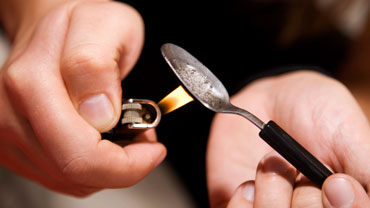Narcotics Decree amended to prohibit new psychoactive substances – synthetic opioids and synthetic cannabinoids continue to raise concerns

The Finnish Government Decree on narcotic substances, preparations and plants (Narcotics Decree) and the classification of substances will be amended again on the basis of UN and national decisions. For the first time, the list of substances classified as narcotics and placed under international control will include new psychoactive substances, that is synthetic opioids, synthetic cannabinoids and synthetic cathinones. The amended Decree will enter into force on 21 September 2020.
The list of substances subject to international control will include for the first time crotonylfentanyl and valerylfentanyl. They are synthetic opioids that closely resemble pain medicine fentanyl, which has been classified as a narcotic substance, in structure.
Fentanyls are highly dangerous, because they are effective in very small doses and their accurate dosing is difficult. Overdose will lead to a life-threatening respiratory depression. The substances are marketed in a way that provides no certainty on the content or purity of the sold product or they are sold as a completely different product or substance. This can also result in situations that unintentionally pose a risk to life and health.
Of the new substances classified as narcotics, CUMYL-4CN-BINACA and ADB-CHMINACA (MAB-CHMINACA) are synthetic cannabinoids. Synthetic cannabinoids have an effect similar to that of cannabis, but compared to plant-based cannabis the use of synthetic cannabinoids involves significant added risks. The substances are considerably stronger than cannabis and their accurate dosing can be difficult.
The Decree will also classify isotonitazene as a narcotic substance nationally. Isotonitazene is a synthetic opioid, which resembles morphine and fentanyl. It is related to etonitazene and clonitazene, which the UN Single Convention has classified as narcotic substances. The substance may cause misuse and addiction similar to morphine. The most harmful effect of an overdose is a life-threatening respiratory depression.
Three psychoactive substances prohibited on the consumer market to be regulated under Narcotics Decree
Simultaneously with the amendment to the Narcotics Decree, three substances that the UN Commission on Narcotic Drugs has classified as narcotics will be removed from the Appendix of the Government decree on psychoactive substances prohibited on the consumer market. The substances that will be transferred to be regulated under the Narcotics Degree are synthetic cannabinoids ADB-FUBINACA and FUBAMB and synthetic cathinone N-ethylnorpentylone.
Synthetic cathinones are related to active ingredients in the khat drug (catha edulis). One of the best known synthetic cathinones in Finland is MDPV, which is classified as a narcotic substance. Cathinones behave as stimulants, much in the same way as amphetamine-like substances, for example.
The amendments to the classification of substances are based on decisions made by the UN Commission on Narcotic Drugs and an assessment by the World Health Organization (WHO) on the harm posed by the substances. The European Monitoring Centre for Drugs and Drug Addiction (EMCDDA) has assessed the harm posed by isotonitazene, on which the Finnish Medicines Agency (Fimea) has based its assessment that a national classification should be made immediately before a possible EU classification.
The Decree will prohibit the production, import, storage, sale, handing over as well as possession and use of illegal substances and these will be regarded as punishable offences. There is a zero-tolerance policy in place for these substances when driving. Classifications by the UN and EU will influence how supervisory authorities in Finland control these substances.
Prohibiting these substances will not completely stop their use, but the aim of the prohibition is to prevent the spread and recreational use of psychoactive substances. Using psychoactive substances can be harmful to health, including mental health and social functioning. The prohibition of these substances may slow down and even prevent the spread of the substances to new user groups, in particular, young people. It will also enable more efficient drug control.
The official name of the decree is the Government Decree on narcotic substances, preparations and plants.
Inquiries:
Elina Kotovirta, Ministerial Adviser +358 2951 63713, [email protected]